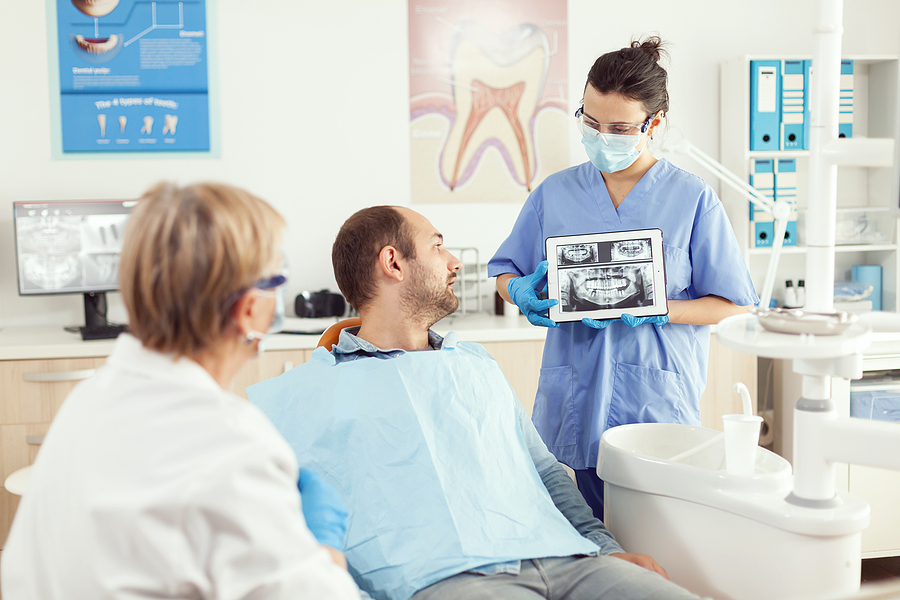Five Common Reasons for Tooth Extraction
Posted by Dental Spa on Nov 5 2023, 10:13 PM
Welcome to our blog post on tooth extraction! While the idea of having a tooth pulled might not be particularly exciting, understanding the reasons behind this common dental procedure can help ease any worries or concerns you may have. Whether you are facing an upcoming extraction yourself or simply curious about why it is sometimes necessary, we've got you covered. In this article, we will explore five common reasons for tooth extraction and provide some helpful tips for post-extraction care and recovery. So sit back, relax, and let's dive into the world of tooth extractions together!
Five Common Reasons for Tooth Extraction
Tooth extraction is a common dental procedure that involves the removal of a tooth from its socket in the jawbone. While it may sound intimidating, there are various reasons why it might be necessary. In this blog post, we will explore five common reasons for tooth extraction.
- Severe Tooth Decay:When a tooth is severely decayed and cannot be saved through other dental treatments like fillings or root canals, extraction may be the only option. Ignoring severe decay can lead to further oral health issues and pain.
- Impacted Wisdom Teeth:Many people experience problems with their wisdom teeth, which are the last set of molars to emerge in adulthood. If these teeth become impacted (stuck beneath the gum line), they can cause pain, infection, crowding, or damage to nearby teeth.
- Gum Disease:Advanced stages of gum disease (periodontitis) can lead to loose teeth that need to be extracted to prevent further spread of infection and protect overall oral health.
- Orthodontic Treatment:Sometimes, overcrowding in the mouth requires tooth extraction as part of orthodontic treatment plans such as braces or aligners. Removing a few teeth creates space for proper alignment and bite correction.
- Trauma or Injury:Accidents happen, and sometimes teeth get damaged beyond repair due to trauma or injury caused by sports mishaps or accidents involving falls or impacts to the face area.
It's important to note that each case is unique, so consulting with your dentist about whether an extraction is necessary is crucial before making any decisions on your own.
Post-Extraction Care and Recovery Tips
After undergoing a tooth extraction, it's essential to take proper care of your mouth to ensure a smooth recovery. Here are some helpful tips to aid in the healing process.
- Follow Your Dentist's Instructions: Your dentist will provide specific guidelines for post-extraction care. These instructions may include how to manage any bleeding or swelling, what medications to take, and how to maintain oral hygiene during recovery.
- Control Bleeding: It is common for some bleeding to occur after an extraction. To control it, gently bite down on a clean gauze pad placed over the extraction site for around 30 minutes. If bleeding persists beyond this time frame, contact your dentist immediately.
- Manage Swelling: Swelling can be minimized by applying an ice pack or cold compress on the outside of your cheek near the extraction site for 10-minute intervals within the first 24 hours following the procedure.
- Maintain Oral Hygiene:While brushing should be avoided near the surgical area for at least 24 hours after extraction, continue cleaning other areas of your mouth with gentle rinsing and flossing as recommended by your dentist.
- Eat Soft Foods:Stick with soft foods that require minimal chewings, like yogurt, soup, mashed potatoes, or smoothies, during the initial days of recovery. Avoid hot liquids and hard foods that can irritate or disturb the healing site.
By following these post-extraction care tips diligently and attending any follow-up appointments scheduled by your dentist, you can promote quick healing and reduce discomfort throughout your recovery period.
Conclusion
Tooth extraction is a common dental procedure that may be necessary for various reasons. While it is always best to preserve your natural teeth whenever possible, there are instances where extraction becomes the most viable option.
We have discussed five common reasons for tooth extraction, including severe decay or infection, impacted wisdom teeth, overcrowding of teeth, gum disease-related bone loss, and trauma or injury to the mouth. Each situation carries its own unique set of circumstances and considerations.
Following a tooth extraction procedure, it is crucial to take proper care of yourself during the recovery phase. This includes following all post-extraction care instructions provided by your dentist or oral surgeon. By doing so, you can help minimize complications and promote healing.
If you require a tooth extraction or suspect that it might be necessary in your case, it's important to consult with a qualified dental professional who can assess your specific situation and provide appropriate recommendations.
Remember that maintaining good oral hygiene practices such as regular brushing and flossing along with routine dental check-ups can go a long way in preserving your overall oral health and potentially avoiding the need for extractions in the future.
Tooth extractions may seem daunting at first thought but rest assured that advances in dental technology have made the process more comfortable than ever before. So, if you find yourself facing an extraction procedure - don't worry! Your dentist will guide you through every step of the way to ensure optimal results for both your smile and overall well-being.



